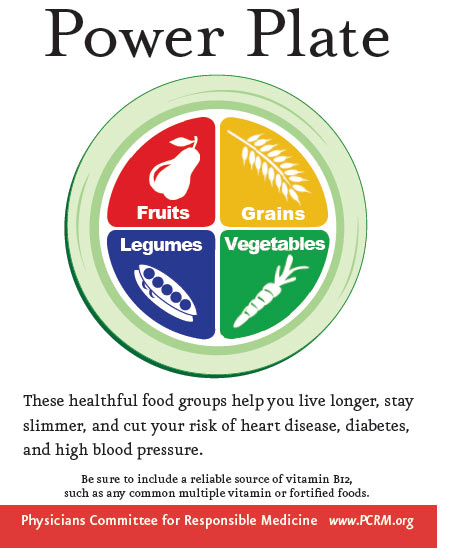
![]() photo credit: Barack Obama
photo credit: Barack Obama
Physicians Committee for Responsible Medicine (PCRM)
PCRM Online, February 2011
News and Media Release
Feb 2, 2011

Oprah Winfrey and Dietary Guidelines Highlight Benefits of Vegan Diet
Yesterday, millions watched Oprah Winfrey and her staff explain the health benefits they experienced during her “vegan challenge.” Earlier this week, the 2010 Dietary Guidelines for Americans set a precedent for federal nutrition policy by acknowledging the benefits of vegan diets.
“Live your best life.” It’s one of Oprah’s mottos. It’s also what she and 378 of her staffers recently did when they went vegan for one week. Three hundred of the staffers who successfully completed the one-week challenge collectively lost 444 pounds. A video editor for the program lost 11 pounds and said that by the third day he felt better than he had in 10 years.
The challenge was led by New York Times best-selling author Kathy Freston, celebrity coach for PCRM’s 21-Day Vegan Kickstart and author of the recently released Veganist: Lose Weight, Get Healthy, Change the World. According to Freston, your weight starts to drop within a week of eating vegan. But that’s not the only upside of a vegan diet.
The 2010 Dietary Guidelines for Americans—issued by the U.S. Department of Agriculture and the U.S. Department of Health and Human Services every five years—devote two full pages to vegetarian and vegan nutrition. They point out that plant-based eating patterns provide nutritional advantages and reduce obesity, heart disease, and overall mortality:
“In prospective studies of adults, compared to non-vegetarian eating patterns, vegetarian-style eating patterns have been associated with improved health outcomes—lower levels of obesity, a reduced risk of cardiovascular disease, and lower total mortality. Several clinical trials have documented that vegetarian eating patterns lower blood pressure.”
Plant-based recommendations for all Americans include:
- Increasing intake of vegetables (especially dark-green, red, and orange vegetables and beans and peas), fruits, whole grains, and fortified soy beverages
- Choosing a variety of protein foods, which include beans, peas, and soy products
Another of the guidelines’ key recommendations is to reduce the intake of calories from solid fats, which come mainly from meats and dairy products and contain few essential nutrients and no dietary fiber.
Sausage, franks, bacon, and ribs are cited as major food sources of solid fats. The guidelines also note that “evidence suggests an association between the increased intake of processed meats (e.g., franks, sausage, and bacon) and increased risk of colorectal cancer and cardiovascular disease.”
“People who avoid meat cut their risk of obesity, diabetes, heart disease, and certain cancers, and those who also avoid dairy products and eggs are healthiest of all,” says PCRM nutrition education director Susan Levin, M.S., R.D. “It’s good to see that these diets are now part of federal policy.”
The new guidelines resonate partially with avoid meat cut their risk of obesity, diabetes, heart disease, and certain cancers’s nutrition recommendations, represented graphically in the Power Plate, for a diet of whole grains, vegetables, fruits, and legumes.
To learn more about a well-rounded vegan diet, visit ThePowerPlate.org.
Then sign up for the next 21-Day Vegan Kickstart that begins April 4.
You may also like:
